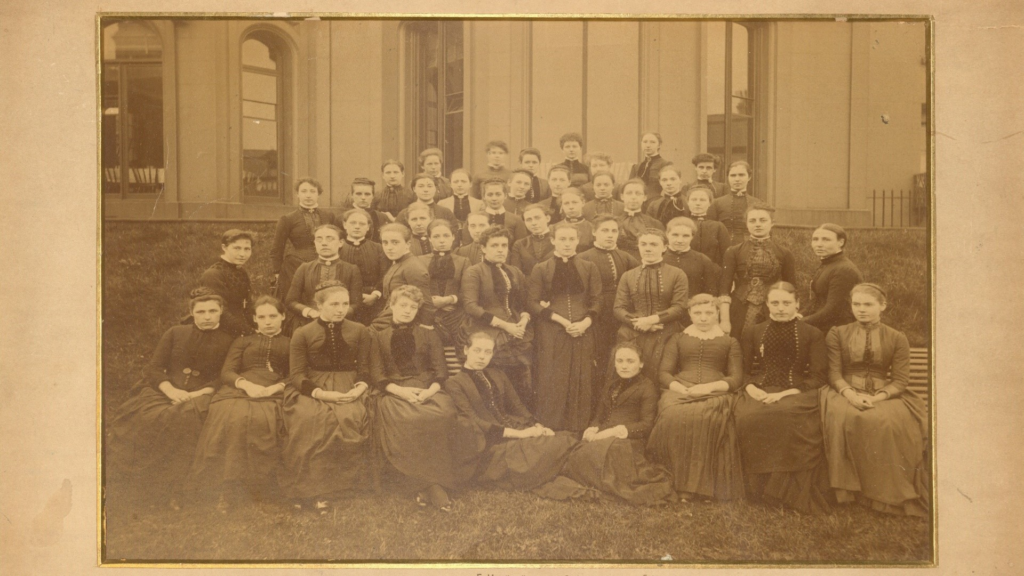Professor Alyson Brown

There is much current emphasis on the need for universities to prove themselves by focusing on students obtaining graduate level employment on completion of their studies. This is one way of assessing what universities achieve, but it is a perspective that fails to recognise the importance of context, longevity and wider considerations of value. A research project currently being undertaken by a new research group, Research Catalyst, is endeavouring to adopt this wider perspective for a historical examination of the women who trained at Edge Hill between 1885 and 1909. Underpinning this project is the work of an intern, generously funded by the Institute for Social Responsibility.
Importantly, this exploration extends beyond the institution to the life experiences of those who studied with us and what they contributed to their communities after they left. Given the social and political constraints upon women at this time we could perhaps be forgiven for thinking that this would not be a dramatic or impressive narrative. Yet, in some cases the women from Edge Hill worked long, hard hours to improve the lives of the children in their care and to mitigate the sometimes poor and deprived backgrounds from which those children came. For example, Jessie Reid Crosbie, who studied at Edge Hill between 1895-1897, taught at a school in Everton for over 30 years and not only became an influential local figure in Liverpool but is credited with, amongst other innovations, the initial development of parent-teacher associations. Another trainee gets into the local paper due to her steadfast refusal to be bullied by a local councillor in a dispute over school organisation. In a letter to the Hastings and St Leonards Observer in 1921, Nelly Clark asserted that ‘I shall not shrink from crossing words with him on whatever ground he pleases’.
There are life experiences that seem superficially less positive, but which still moved and inspired their communities. For example, Annie Williams completed her studies at Edge Hill in 1893 to work for a time in a school in Liverpool before travelling as a missionary to Shillong, India. She died of cholera at the tragically young age of 23 but during her short life sent letters to friends at home and from her Edge Hill days, some of which have survived. Her life and death were significant enough to be covered in Welsh newspapers which emphasised the impact of her loss and the sacrifice for her faith.
This project includes over 1400 women and will allow us to consider bigger questions such as where these students came from, where they went, how many of them remained in the profession or gave work upon marriage? It will also take a more in-depth view of at least some of these lives, how they were lived and what they contributed to their communities. This has the potential not only to be a fascinating academic study but also to make a significant contribution to family and local history. In addition, it will support understanding of the importance of Edge Hill not just as an emerging provider and innovator of teacher training for women in the North of England but as a contributor to the schools and communities these women joined.
Professor Alyson Brown is the Associate Head of History, Geography and Social Sciences, with specific responsibility for research and for postgraduates in the department at Edge Hill University
